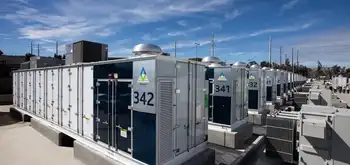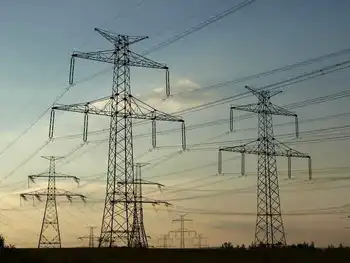Iowa board may revamp shut-off rules
By Associated Press
Substation Relay Protection Training
Our customized live online or in‑person group training can be delivered to your staff at your location.

- Live Online
- 12 hours Instructor-led
- Group Training Available
The body of 93-year-old Marvin Schur was found in his home by a neighbor on January 17. An electricity "limiter" was installed to restrict use to Schur's home four days earlier because he owed the local electric utility more than $1,000.
Now, a state official claims the same thing could happen in Iowa if rules governing the use of service limiters are rewritten.
"It's a pretty safe bet someone's going to die from this," said Jerry McKim, chief of the Bureau of Energy Assistance in the Iowa Department of Human Rights. "The bottom line here is that the use of service limiters puts the health and safety of already vulnerable households at risk."
A service limiter monitors energy use and turns off power when use exceeds a preset level. The monitor must be reset for power to resume.
Iowa has had rules on the books since the mid-1980s allowing for the use of service limiters, said Chuck Seel of the Iowa Utilities Board.
He said back then the devices were mechanical. Now, they're electronic and offer a wider array of options, Seel said.
Among the options are the ability to reset automatically without any action by the utility or homeowner and the possible expansion into time-based pricing where appliances can be set on timers to run during off-peak hours when rates are cheaper.
In Iowa, the devices are now used by only a couple of municipal utilities, but rural electric cooperatives are interested in changing state rules to allow them to use new, higher-tech limiters, said Allen Urlis, a spokesman for the Iowa Association of Electric Cooperatives.
One of those rural cooperatives, Consumers Energy in Marshalltown, is seeking the rule change. The utilities board is conducting a hearing on the proposed rules.
Urlis said the new limiters run in 15-minute cycles, turning off if usage exceeds a preset limit. It would automatically reset after 15 minutes, turn off again in 15 minutes if usage doesn't decrease, and then reset again in 15 minutes. It would repeat the cycle until energy use falls below the established limit, Urlis said.
Urlis emphasized that use of service limiters is voluntary.
"It wouldn't be something where a utility forces upon you the use of a limiter," Urlis said. "If Consumers Energy didn't believe this technology could be used safely, it wouldn't be interested in using it.
"No one wants a repeat of something happening like it did in Michigan. Something went terribly wrong and that's the last thing Consumers Energy or any utility wants to happen," Urlis said.
Officials with both Alliant Energy and MidAmerican Energy, the state's largest utilities, said they don't use service limiters.
"We currently have no plans to use them in the future," said Ann Thelen, a MidAmerican spokeswoman.
Ryan Stensland, a spokesman for Alliant Energy, said the company will help customers set up payment options if they fall behind or can't afford their bill.
He said whether the company begins using service limiters will depend on what action is taken by the utilities board.
"Based on the limits set by the utility board, we'll have to make a decision on the impact it would have on our customers," Stensland said.
He said a service limiter could be used to help customers manage energy use if their bills get too high.
Pocahontas Municipal Utilities is one of the municipal utilities in Iowa now using service limiters.
"We have two on hand and one currently in use," said Mitch Langschwager, manager of the utilities in the northern Iowa town of about 1,900. "We use them in a case where someone owes us a substantial amount of money. We put it on to limit their electricity — enough so they can run their furnace and maybe a couple of lights — but so they don't get in further debt to the city."
Langschwager said he isn't aware of any problems with the safety of customers whose homes have a service limiter installed.
"We would be less likely to put a limiter on someone that couldn't take care of themselves," he said. "If it were an elderly person, we would check on them."
In the current case, the limiter is attached to the home of a younger couple. It was installed about a week ago and Langschwager said he hasn't heard from them about any concerns.
McKim, chief of the Bureau of Energy Assistance in Iowa, said states such as Minnesota and Vermont prohibit service limiters during the cold winter months.
He said Iowa has some of the best rules regarding payment plans for utility customers who fall behind and he sees no purpose for using service limiters. He said utilities use the device as a collection tool and its use isn't always consensual.
"I can tell you that people are intimidated by the entity who has the power to disconnect them and they will relent to whatever is given to them," said McKim.
He disagrees with claims by utility companies that service limiters avoid disconnections by helping customers better manager the energy use.
"It ignores the fundamental nature of energy use," McKim said. "It's not the number of appliances you have but the age, condition and efficiency of appliances and a house itself, and the demographics of a house — two kids or four kids — that drives the usage in that house."











